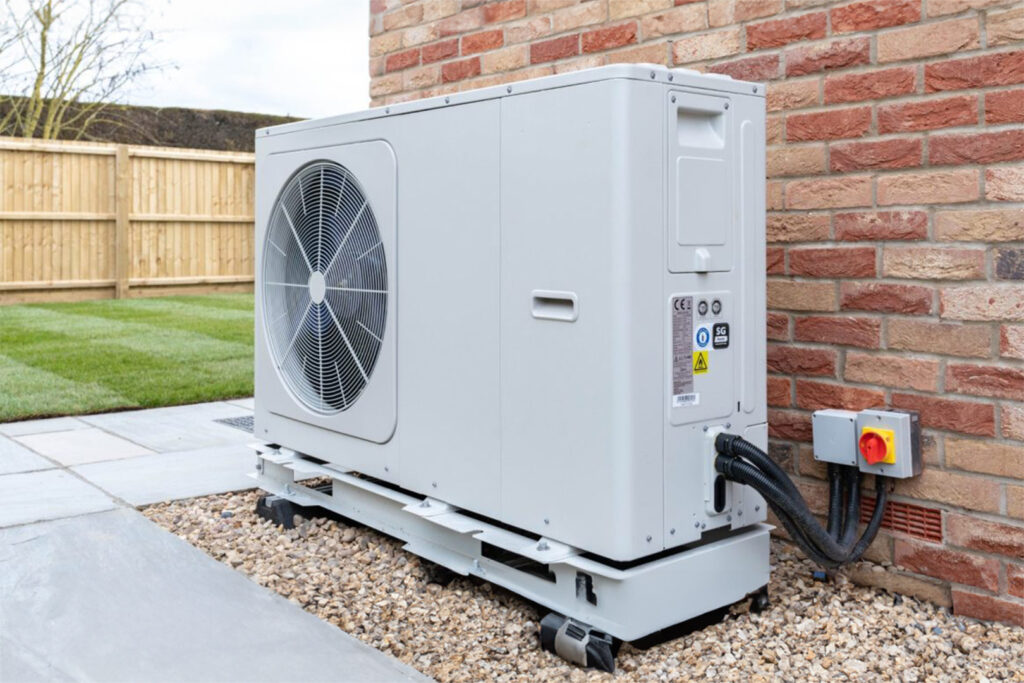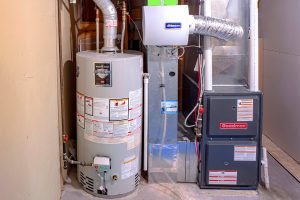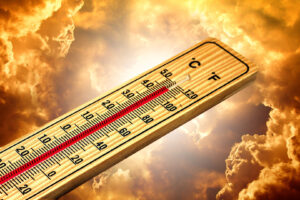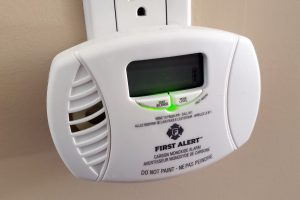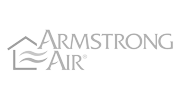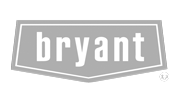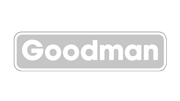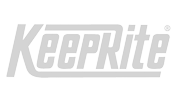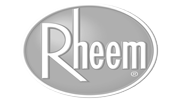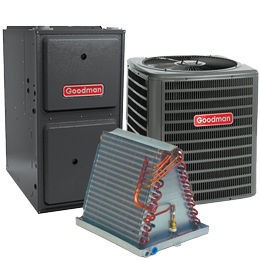Don’t Ignore These Warning Signs: Heat Pump Repair Essentials
As a homeowner, your heat pump is crucial year-round to keeping your living space comfortable. However, like any mechanical system, heat pumps can develop issues over time, leading to inefficient performance, increased energy costs, and potential system failure. This comprehensive guide explores the top 10 signs that your residential heat pump needs repair, empowering you to take prompt action and ensure your family’s comfort.
1. Heat Pump Does Not Turn On
One of the most obvious signs that your heat pump needs attention is when it simply refuses to turn on. This issue could stem from various causes, including:
- Temperature or Thermostat Issues: Ensure your thermostat is set to the correct temperature and mode (heating or cooling). If the thermostat itself is faulty, it may need to be replaced.
- Bad Capacitor: A capacitor is a small component providing the initial energy burst required to start the compressor and fan motors. If the capacitor is defective, the heat pump won’t turn on.
- Heat Pump Issues in Cold Weather: a. Low or Leaking Refrigerant: Insufficient refrigerant levels can prevent the heat pump from operating efficiently in colder temperatures. b. Blockage Around the Outdoor Unit: Snow, ice, or debris buildup around the outdoor unit can restrict airflow, causing the heat pump to struggle or shut down.
- Hot Weather Heat Pump Problems: a. Low or Leaking Refrigerant: Similar to cold weather issues, a lack of refrigerant can impair the heat pump’s ability to cool your home effectively. b. Blockage Around the Outdoor Unit: Leaves, grass clippings, or other debris obstructing the outdoor unit can lead to overheating and system failure. c. Bad Compressor: The compressor is the heart of the heat pump system, and if it fails, the entire unit will be unable to function.
2. Heat Pump Doesn’t Run at All
Even if the heat pump appears to receive power, it may still fail to operate. Potential causes include:
- Emergency Shut-off Switch: Ensure that the emergency shut-off switch, typically located near the indoor or outdoor unit, is in the “on” position.
- Blown Fuse or Circuit Breaker: Check your home’s electrical panel for tripped circuits or blown fuses related to the heat pump system.
- Broken Contactor or Capacitor: These components send the electrical signals to start the heat pump’s motors. If they are faulty, the system won’t run.
- Control Module: The control module acts as the brain of the heat pump, and if it malfunctions, it can prevent the system from operating correctly.
- Bad Cable or Wiring: Damaged or loose wiring connections can disrupt the flow of power and signals to the heat pump, rendering it inoperable.
- Faulty Relay: Relays act as switches, controlling the flow of electricity to various components. A malfunctioning relay can prevent the heat pump from turning on or running properly.
3. Heat Pump Blower Doesn’t Work
If the heat pump’s blower or indoor fan isn’t running, it could be due to:
- Limit Switch: The limit switch is a safety feature that shuts off the blower if the system overheats. A stuck or faulty limit switch can prevent the blower from operating.
- Thermostat Problem: A malfunctioning thermostat may not communicate properly with the blower, preventing it from turning on or off as needed.
4. Heat Pump Is Short- or Long-Cycling
Short cycling refers to the heat pump turning on and off frequently, while long cycling runs continuously without reaching the desired temperature. These issues can be caused by:
- Outside Unit Overheating: Obstructions around the outdoor unit or low refrigerant levels can cause the system to overheat, leading to frequent cycling.
- Thermostat Improperly Calibrated: An incorrectly calibrated thermostat may provide inaccurate temperature readings, causing the heat pump to cycle improperly.
5. Heat Pump Makes Odd Noises
While some noise is expected from a running heat pump, excessive or unusual sounds can indicate a problem:
- Squealing or Grinding Noise: These noises often signify an issue with the blower motor bearings or other moving parts requiring lubrication or replacement.
- Rattling: A rattling sound could be caused by loose panels, fasteners, or components within the unit, which may need to be tightened or replaced.
- Popping Noise: A popping or banging sound may indicate the presence of debris within the system or a refrigerant issue that needs to be addressed.
6. Strange Odours
If you notice unusual odours emanating from your heat pump, it could be a sign of a problem:
- Burning Smell: A burning odour may indicate an electrical issue, such as a shorted wire or overheating component, which requires immediate attention to prevent further damage or potential fire hazards.
- Musty or Moldy Smell: This odour could be caused by excess moisture or standing water within the system, potentially leading to mould growth and decreased indoor air quality.
7. Frequent Cycling On and Off
While some cycling is normal for a heat pump, excessive cycling can be a sign of an issue and can lead to increased wear and tear on the system. This could be caused by:
- Improper Sizing: If the heat pump is too small or too large for the space it’s meant to condition, it will cycle more frequently, leading to inefficient operation and potential system failure.
- Air Flow Obstructions: Blocked air filters, ducts, or vents can restrict airflow, causing the heat pump to cycle more often as it struggles to maintain the desired temperature.
8. Increased Energy Bills
If you’ve noticed a significant increase in your energy bills without a corresponding change in usage, it could be a sign that your heat pump is operating inefficiently. This could be due to:
- Refrigerant Leaks: Low refrigerant levels force the system to work harder, consuming more energy to achieve the same level of heating or cooling.
- Dirty or Clogged Components: Accumulated dirt, dust, or debris on the coils, filters, or other components can impede efficient heat transfer, causing the system to consume more energy.
- Aging System: As heat pumps age, their efficiency naturally decreases, leading to higher energy consumption to maintain the desired temperature.
9. Inconsistent Heating or Cooling
If certain rooms or areas of your home are consistently warmer or cooler than others, it could indicate an issue with your heat pump system:
- Ductwork Leaks or Obstructions: Leaks or blockages in the ductwork can prevent proper airflow distribution, resulting in uneven temperatures throughout your living space.
- Zoning Issues: If your home has multiple zones or HVAC systems, a problem with one unit can affect the overall temperature balance.
- Refrigerant Leaks: Low refrigerant levels can compromise the heat pump’s ability to effectively transfer heat, leading to inconsistent heating or cooling performance.
10. Frozen Outdoor Unit
In colder climates, it’s not uncommon for the outdoor unit of a heat pump to accumulate frost or ice. However, if you notice excessive ice buildup or a completely frozen unit, it could be a sign of a more serious issue, such as:
- Low Refrigerant Levels: Insufficient refrigerant can cause the system to work harder, leading to excessive frost or ice formation on the outdoor unit.
- Defective Defrost Cycle: The heat pump’s defrost cycle is designed to melt away any accumulated frost or ice periodically. If this cycle is not functioning correctly, it can lead to a frozen outdoor unit.
- Blocked Airflow: Obstructions around the outdoor unit can restrict airflow, causing the system to work harder and potentially leading to excessive ice buildup.
By being aware of these 10 signs, you can take proactive steps to address any issues with your heat pump before they escalate into more significant problems. Regular maintenance and prompt repairs can help extend the lifespan of your system, ensure optimal performance, and maintain a comfortable living environment for you and your family.
At Unionville Heating and Air Conditioning, we pride ourselves on providing exceptional service and expertise to our valued customers. Our highly trained technicians are equipped with the knowledge and tools to diagnose and repair any issue your heat pump may be experiencing.
If you notice any of the above signs, don’t hesitate to contact us. We understand the importance of a well-functioning heat pump for your home’s comfort and energy efficiency. Our prompt and professional service will restore your heat pump to peak performance, minimizing downtime and potential future problems.
We also strongly recommend scheduling regular maintenance check-ups for your heat pump system. These preventative measures can identify and address minor issues before they escalate into more significant problems, ultimately saving you money and extending the lifespan of your equipment.
At Unionville Heating and Air Conditioning, we are committed to providing our customers with the highest level of service and expertise. Our friendly and knowledgeable staff is always available to answer any questions or concerns about your heat pump or overall HVAC system.
Don’t let heat pump issues disrupt your home’s comfort or increase energy costs. Schedule an appointment today, and let our team of experts ensure that your heat pump is operating at its best, providing you with efficient and reliable heating and cooling throughout the year.


